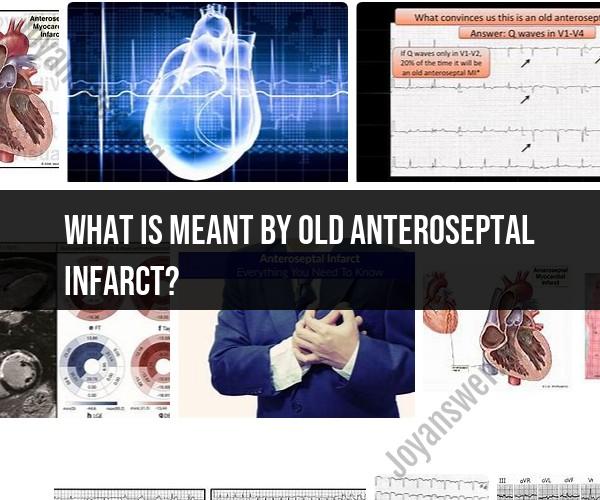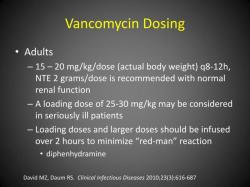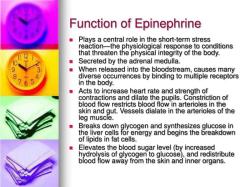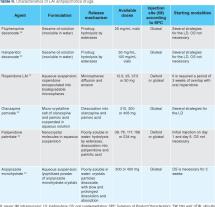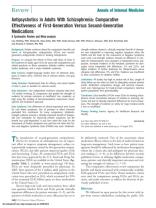What is meant by old anteroseptal infarct?
In medical terms, an "old anteroseptal infarct" refers to a specific type of heart injury or damage that has occurred in the past. Let's break down this term to understand its meaning:
Infarct: An infarct is an area of tissue that has died due to a lack of blood supply. In the context of the heart, it typically occurs when a coronary artery, responsible for supplying blood to a specific part of the heart muscle, becomes blocked. This blockage can be caused by a blood clot or the buildup of fatty deposits (atherosclerosis).
Anteroseptal: The term "anteroseptal" is a combination of two words:
- "Antero" refers to the anterior part of the heart, which is the front portion.
- "Septal" refers to the septum, which is the muscular wall that separates the left and right sides of the heart.
So, when we say "anteroseptal," we're referring to the front part of the septum of the heart.
- Old: The word "old" indicates that this infarct is not recent but happened in the past. The term "old" in medical reports often implies that the tissue damage occurred some time ago and has had time to heal and scar over.
In summary, an "old anteroseptal infarct" is a description of a previously damaged area of the front portion of the septum of the heart. This damage was due to a past restriction of blood supply, which can lead to scarring and changes in the heart muscle. It's important for healthcare professionals to identify and document such past infarcts because they can provide valuable information about a patient's cardiac history and can influence treatment decisions.
Explaining an Old Anteroseptal Infarct
An old anteroseptal infarct is a heart attack that has occurred in the anteroseptal wall of the heart. The anteroseptal wall is the front and middle part of the heart wall. It is responsible for pumping blood to the body.
A heart attack occurs when the blood supply to the heart muscle is blocked. This can damage or destroy the heart muscle. An old anteroseptal infarct means that the heart attack occurred in the anteroseptal wall of the heart and has healed. However, the damage to the heart muscle may remain.
The Significance of Anteroseptal Myocardial Infarction
An anteroseptal myocardial infarction is a serious medical condition. It can lead to a number of complications, including:
- Heart failure
- Arrhythmias (abnormal heart rhythms)
- Cardiogenic shock (a life-threatening condition in which the heart is unable to pump enough blood to the body)
Clinical Implications and Diagnostic Information
People with an old anteroseptal infarct may experience a number of symptoms, including:
- Shortness of breath
- Chest pain
- Fatigue
- Edema (swelling in the legs and feet)
Anteroseptal myocardial infarction can be diagnosed using a variety of tests, including:
- Electrocardiogram (EKG)
- Echocardiogram
- Stress test
- Cardiac catheterization
Long-Term Effects and Management of an Old Infarct
The long-term effects of an old anteroseptal infarct depend on the severity of the heart attack and the amount of damage to the heart muscle. Some people may have no long-term effects, while others may experience heart failure, arrhythmias, or other complications.
Treatment for an old anteroseptal infarct typically involves lifestyle changes, such as quitting smoking, eating a healthy diet, and exercising regularly. Medications may also be prescribed to manage symptoms and prevent complications.
Communicating with Healthcare Professionals About Cardiac Health
It is important to communicate with your healthcare professionals about your cardiac health. This includes telling them about your medical history, including any history of heart attacks. It is also important to tell them about any symptoms you are experiencing.
Here are some tips for communicating with healthcare professionals about your cardiac health:
- Be honest and open about your medical history and symptoms.
- Ask questions if you don't understand something.
- Bring a list of all the medications you are taking.
- Be prepared to discuss your lifestyle, such as your diet, exercise habits, and smoking status.
- Ask for a follow-up appointment to discuss your test results and treatment plan.
By communicating with your healthcare professionals, you can get the best possible care for your heart health.
